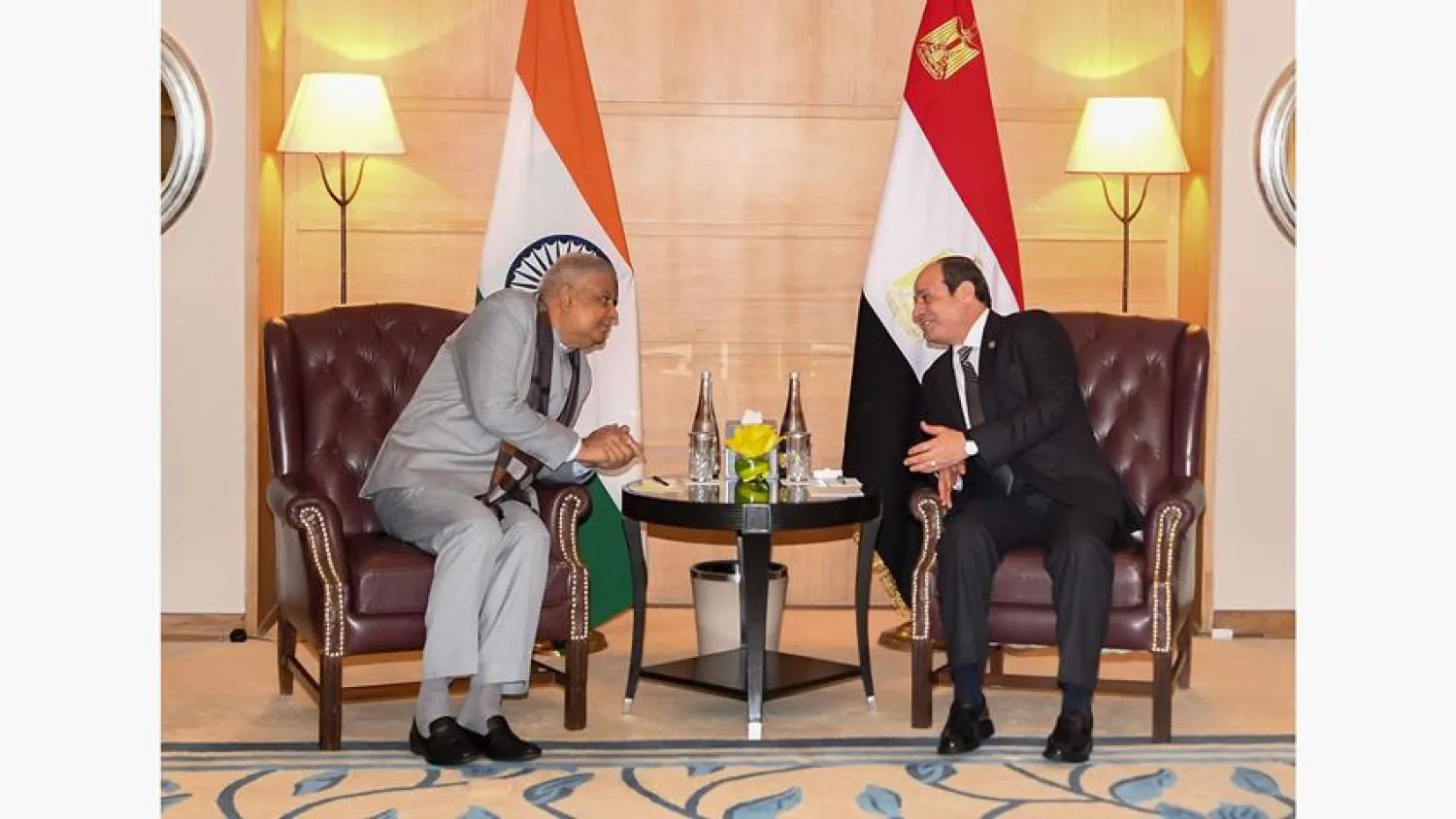Egypt and India affirmed they would deepen military cooperation and explore new initiatives to intensify military cooperation.
A joint statement bythe two countries referred to elevating their relationship to the level of a strategic partnership to ramp up the defense, political, energy, and economic ties.
Egyptian President Abdel Fattah El-Sisi and Indian Prime Minister Narendra Modi hailed the progress in implementing the outcome of the ninth meeting of the Joint Defense Committee, which was held in Cairo in November 2019.
Both leaders hoped to convene the tenth meeting of this committee soon in India, the statement said.
Sisi arrived in New Delhi at the invitation of Modi to participate in celebrations marking "Republic Day," the date on which the Constitution of India came into effect in 1950.
According to a statement by the Egyptian presidential spokesman, Bassam Radi, the two leaders hoped the trade volume would reach $12 billion in the next five years by diversifying the trade basket and increasing the added value, the statement concluded.
The joint statement pointed out that Cairo and New Delhi affirmed their commitment to multilateralism, the principles of the United Nations Charter, international law, the founding values of the Non-Aligned Movement, and respect for the sovereignty and territorial integrity of all states.
They affirmed their intention to cooperate in trade in strategic commodities required to achieve food security so that the two countries can contain the repercussions of the global food crisis.
According to the joint statement, Sisi and Modi appreciated that the military cooperation between their armed forces has reached new levels through joint exercises, transit operations, and high-level bilateral visits.
They agreed to further enhance and deepen defense cooperation in all fields, especially by exchanging technology between defense industries, widening the footprint of military exercises, and exchanging best practices.
Sisi and Modi were concerned about spreading terrorism worldwide, stressing that terrorism constitutes one of humanity's most severe security threats.
The two leaders condemned the use of terrorism as a tool of foreign policy, calling for zero tolerance towards those who encourage, support, finance, or provide sanctuaries for terrorists.
They also stressed the need for the international community to coordinate action to eliminate terrorism in all its forms and manifestations, including cross-border terrorism.
The Egyptian President and the Indian Prime Minister reiterated their condemnation of all efforts to use religion to justify, support, or sponsor terrorism against other countries.
They renewed their joint determination to promote peace, tolerance, and inclusiveness, reiterating the need to convene the joint committee on combating terrorism regularly to exchange information and best practices.
Sisi and Modi highlighted the pioneering role of Egypt and India in maintaining international peace and security, being among the top ten countries contributing military and police forces to UN peacekeeping missions.
On Thursday, Sisi received at his residence in New Delhi the Vice President of India, Jagdeep Dhankhar.
The Vice President welcomed the President's visit to New Delhi, lauding the outstanding relations between the Egyptian and Indian peoples.
He confirmed India's keenness to support Egypt's efforts to achieve comprehensive development, which witnessed significant progress over the past period.
Dhankhar stressed his country's interest in strengthening the partnership between the two countries in various fields, particularly in trade and investments.









